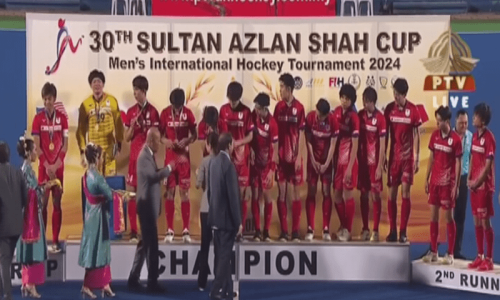THE preamble to the Constitution says: “The state shall exercise its powers and authority through the chosen representatives of the people.” The Islamabad High Court underscored this principle of democracy in unambiguous terms on Wednesday while disposing of the petition challenging the appointment of Shahzad Akbar as the prime minister’s adviser on accountability and interior. Islamabad High Court Chief Justice Athar Minallah observed that the country’s chief executive has the prerogative of appointing whomever he deems appropriate to advise him, and of tendering advice to the president for individuals to be appointed as his advisers. However, the court also declared that unelected advisers and special assistants to the prime minister cannot exercise executive or administrative powers in the functioning of the government; they cannot even speak on the government’s behalf. Moreover, said Justice Minallah, only elected representatives have the privilege of running the ministries.
At present, the prime minister has five advisers — the maximum constitutionally allowed — with the powers and status of federal ministers. He also has 14 special assistants, a role the Constitution does not even recognise; despite this, several special assistants have been accorded federal minister status. Much angst has been simmering within the ranks of elected PTI ministers who find themselves sidelined while non-elected advisers and special assistants assume decision-making roles in their ministries. The resentment has surfaced several times, with Aviation Minister Ghulam Sarwar Khan and Federal Minister for Science and Technology Fawad Chaudhry among those who have given voice to it.
It is unfortunate the court has had to point out that which should have been very clear to a government that draws its legitimacy from the power of the people’s vote. There is a perception, not wholly unfounded, that Prime Minister Imran Khan is running the government largely with the help of individuals who have been handpicked by him, rather than chosen by the electorate — a parallel cabinet of sorts. While the prime minister can, indeed should, select the most capable individuals to help him run the affairs of the state — the PPP and PML-N too had advisers who would sit in cabinet meetings and attend parliament — his discretion to do so is not unfettered. Rules of Business 1973 make it clear that having the status of federal minister does not confer executive authority; at most, it is for protocol purposes. Advisers and special assistants should play a low-key, behind-the-scenes role; their link should be to the prime minister alone, not to the bureaucracy or the public. Certainly, there are times when a minister needs specialised advice where his or her portfolio is concerned; it may invite less controversy to have experts attached to the ministry itself. Meanwhile, for the next elections, perhaps the PTI could consider putting up candidates who could bring their expertise to the cabinet through the electorate instead of through the back door.
Published in Dawn, August 28th, 2020









































